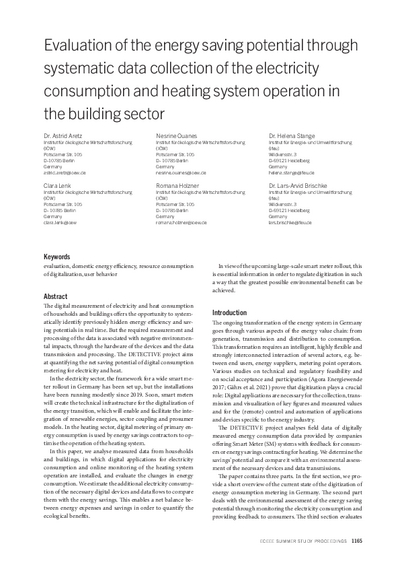Evaluation of the energy saving potential through systematic data collection of the electricity consumption and heating system operation in the building sector
The digital measurement of electricity and heat consumption of households and buildings offers the opportunity to systematically identify previously hidden energy efficiency and saving potentials in real time. But the required measurement and processing of the data is associated with negative environmental impacts, through the hardware of the devices and the data transmission and processing. The DETECTIVE project aims at quantifying the net saving potential of digital consumption metering for electricity and heat.
In the electricity sector, the framework for a wide smart meter rollout in Germany has been set up, but the installations have been running modestly since 2019. Soon, smart meters will create the technical infrastructure for the digitalization of the energy transition, which will enable and facilitate the integration of renewable energies, sector coupling and prosumer models. In the heating sector, digital metering of primary energy consumption is used by energy savings contractors to optimize the operation of the heating system.
In this paper, we analyze measured data from households and buildings, in which digital applications for electricity consumption and online monitoring of the heating system operation are installed, and evaluate the changes in energy consumption. We estimate the additional electricity consumption of the necessary digital devices and data flows to compare them with the energy savings. This enables a net balance between energy expenses and savings in order to quantify the ecological benefits.
In view of the upcoming large-scale smart meter rollout, this is essential information in order to regulate digitization in such a way that the greatest possible environmental benefit can be achieved.



